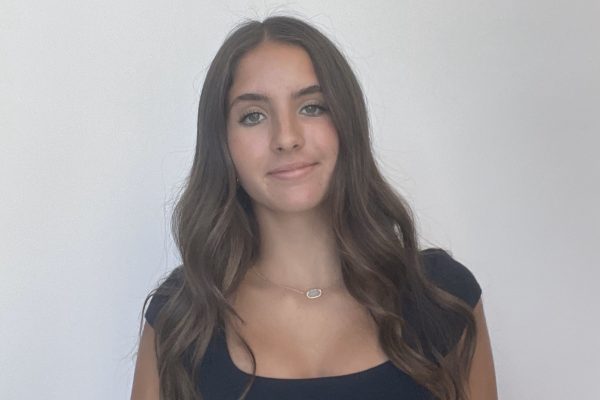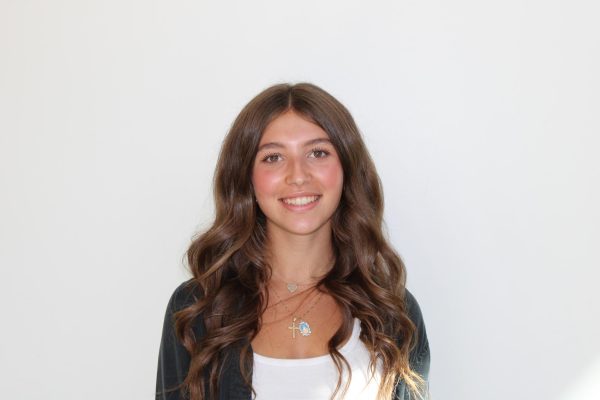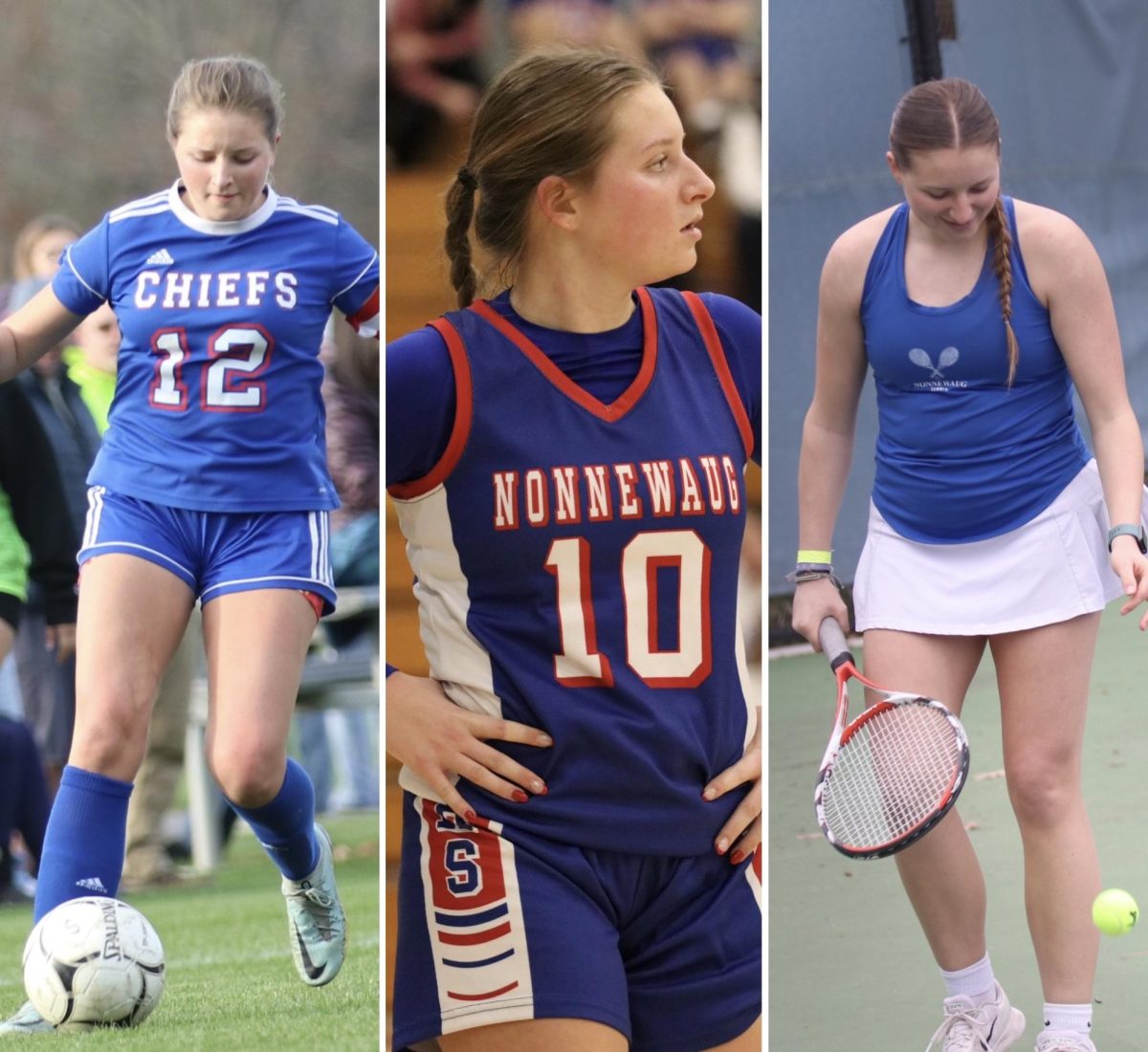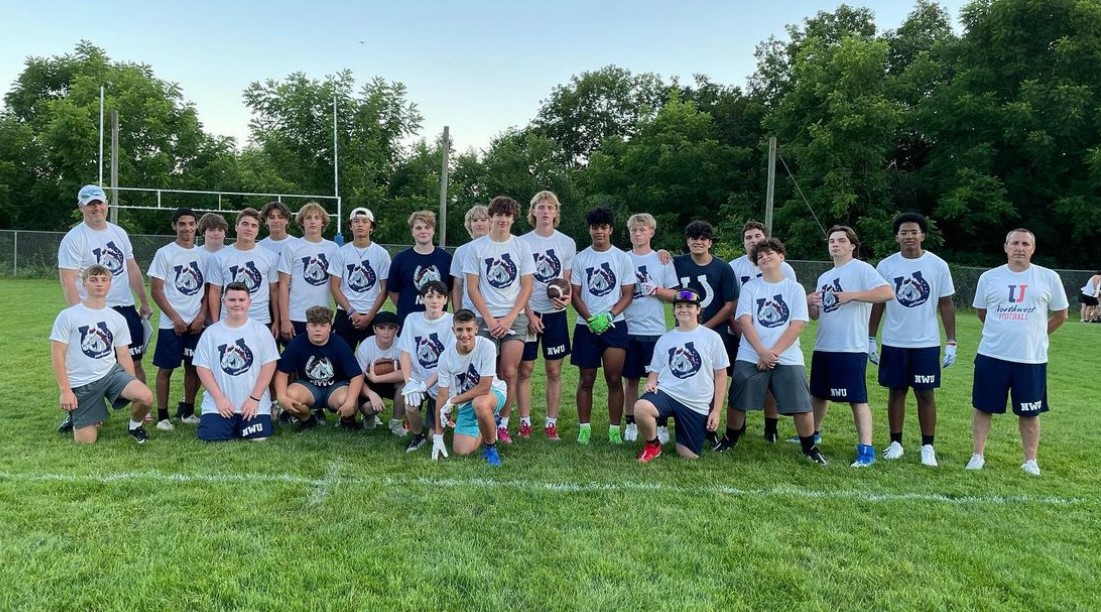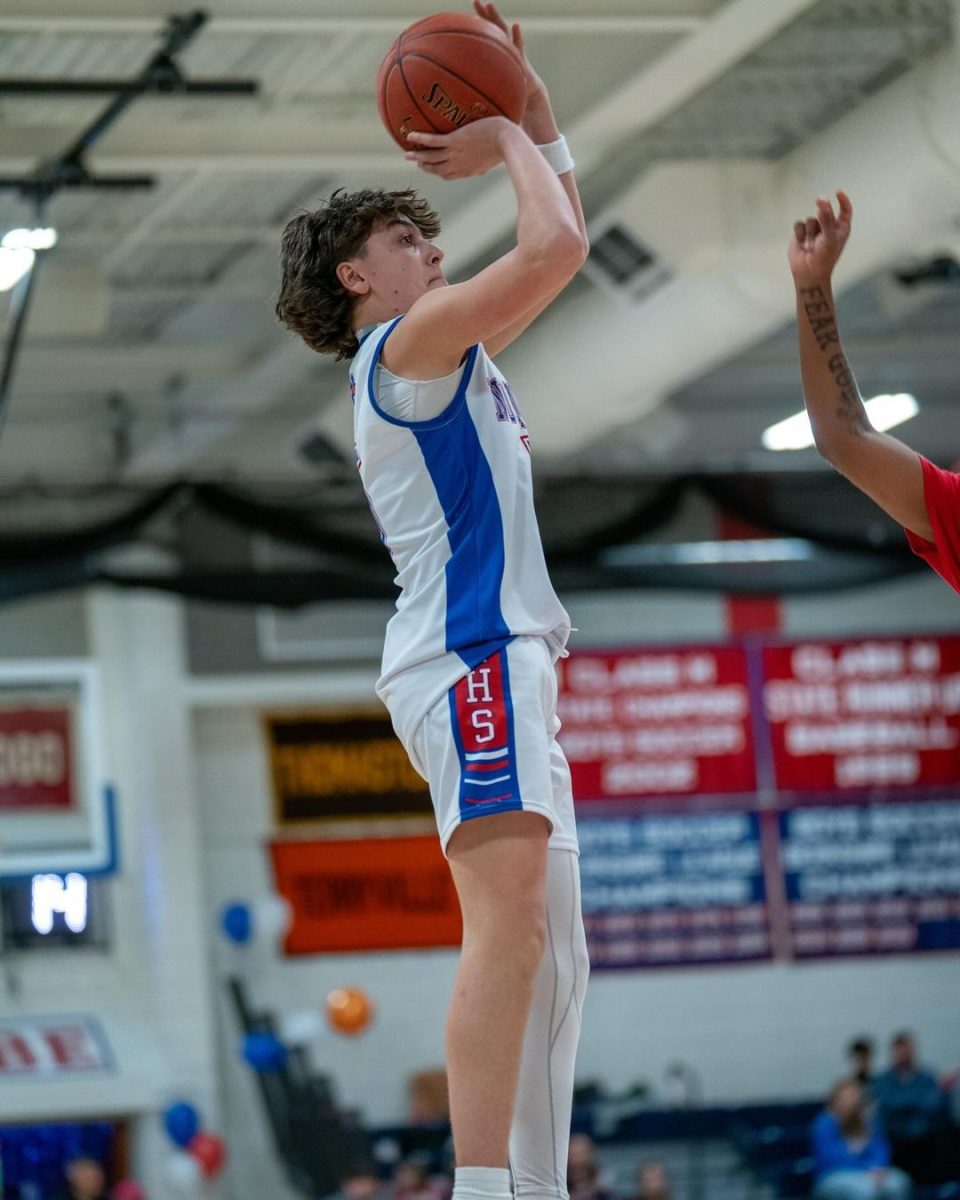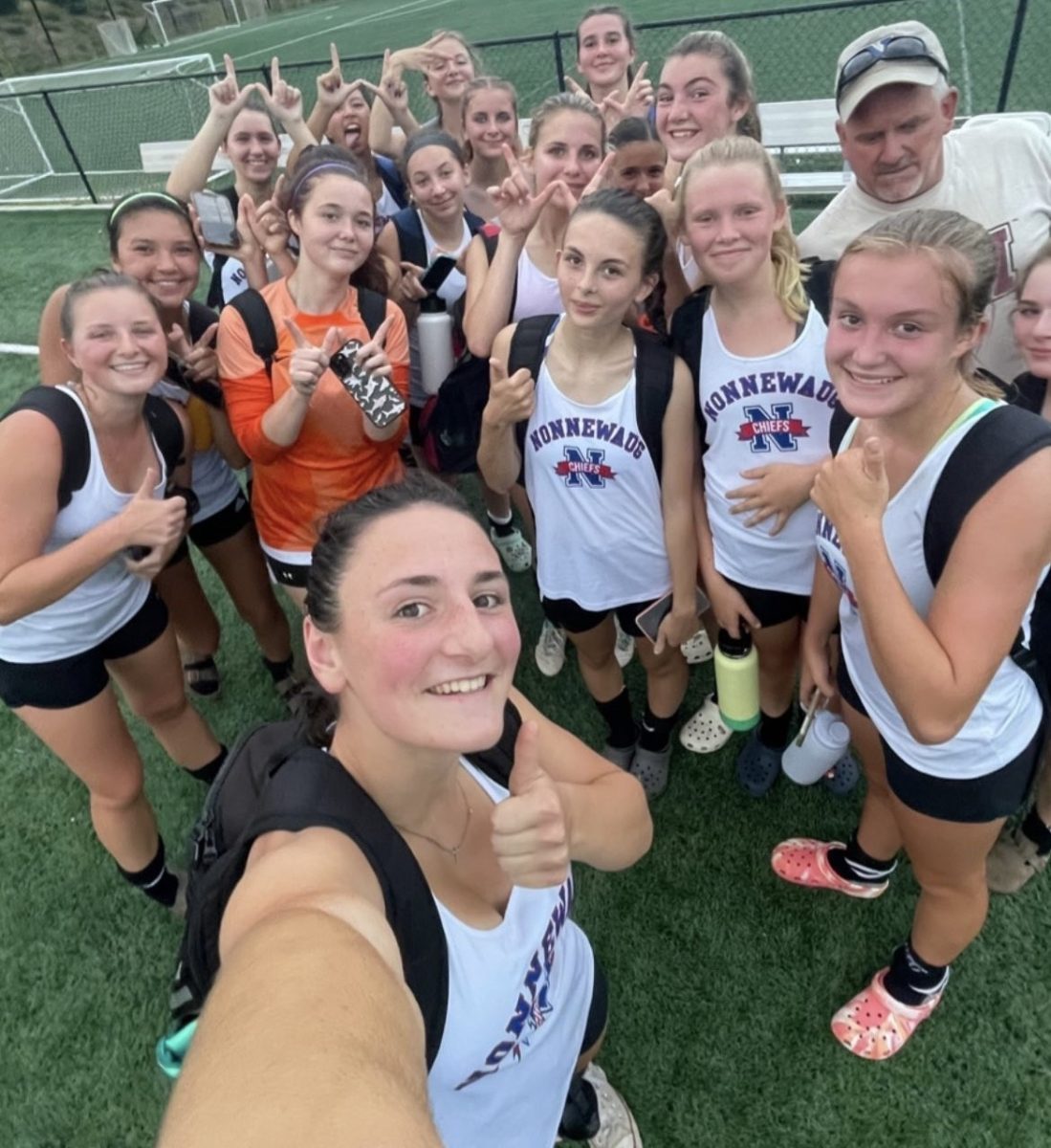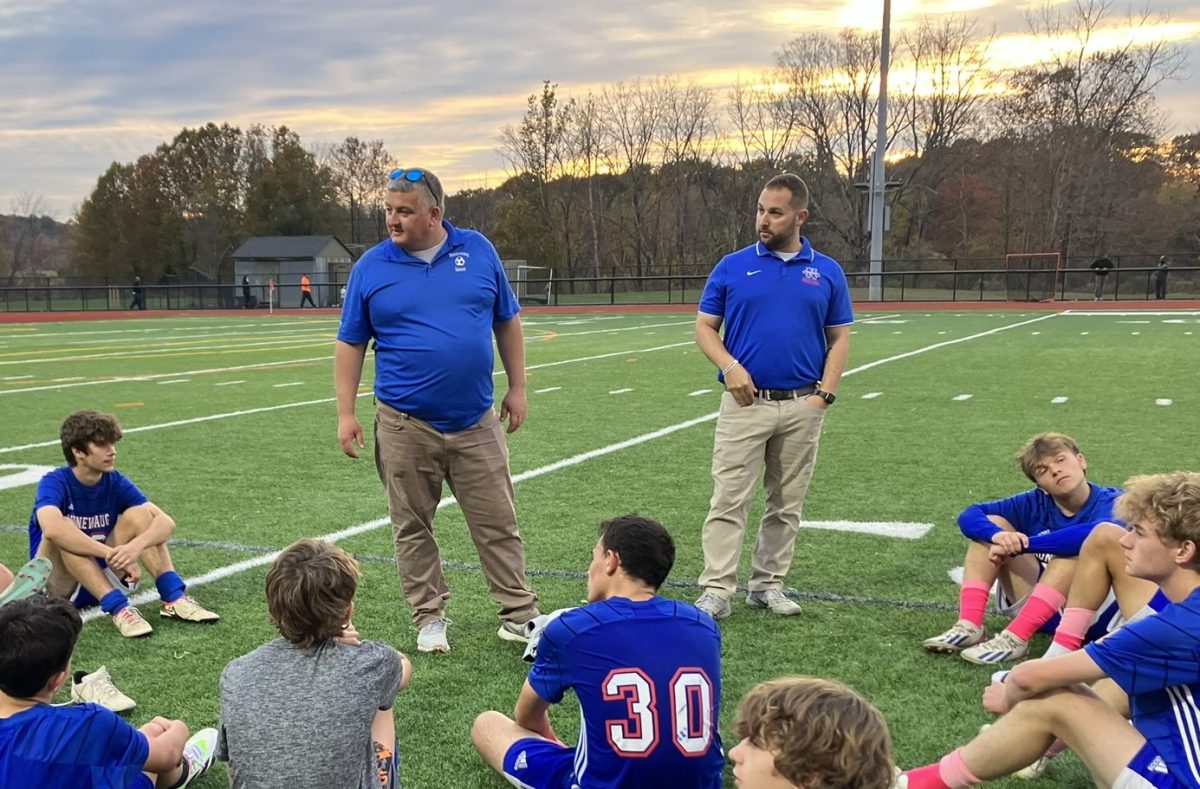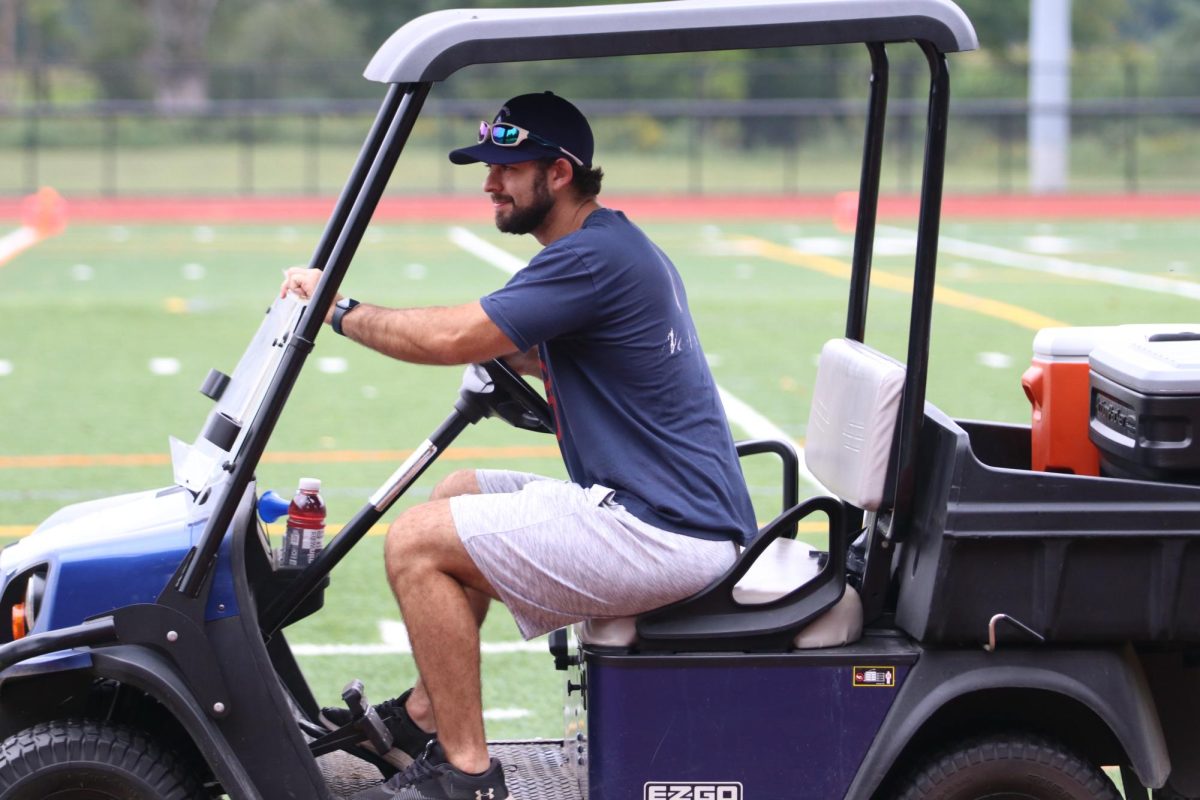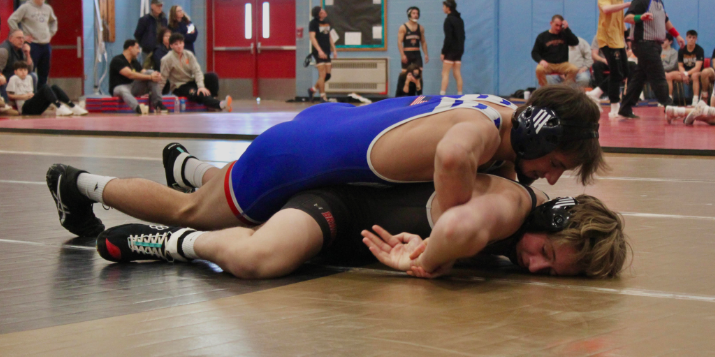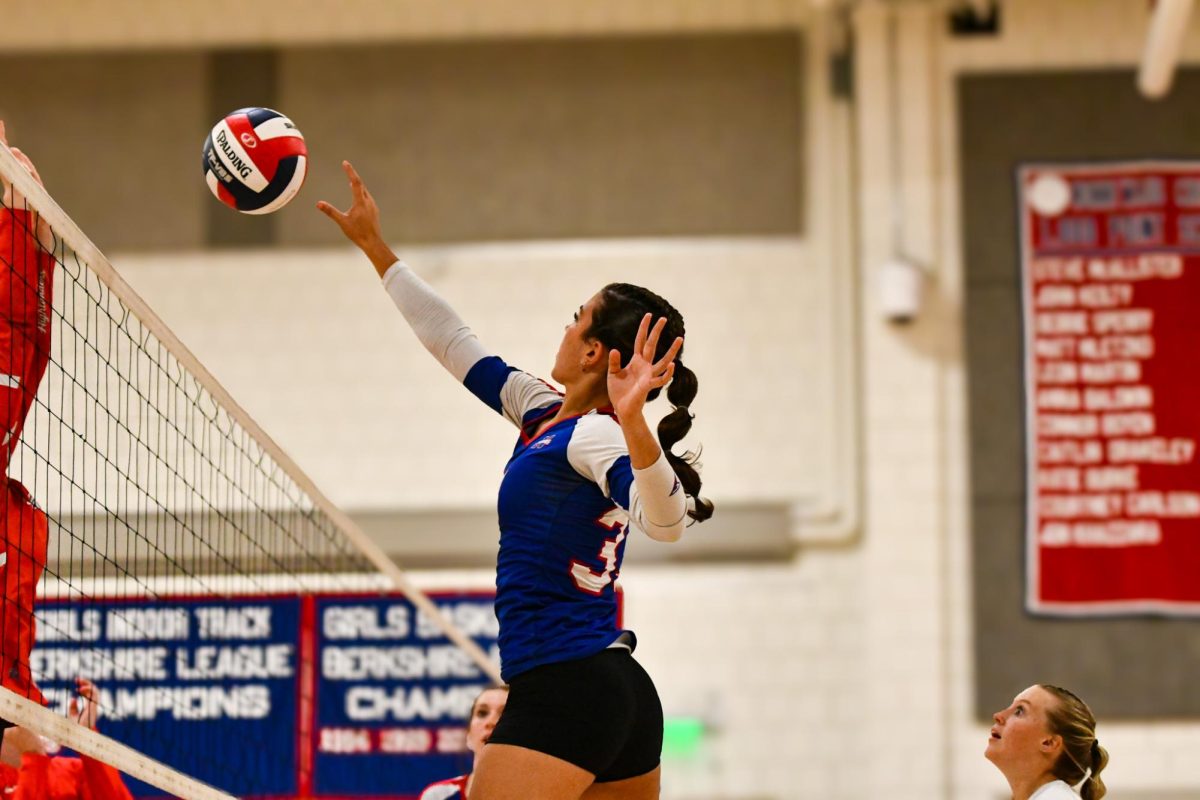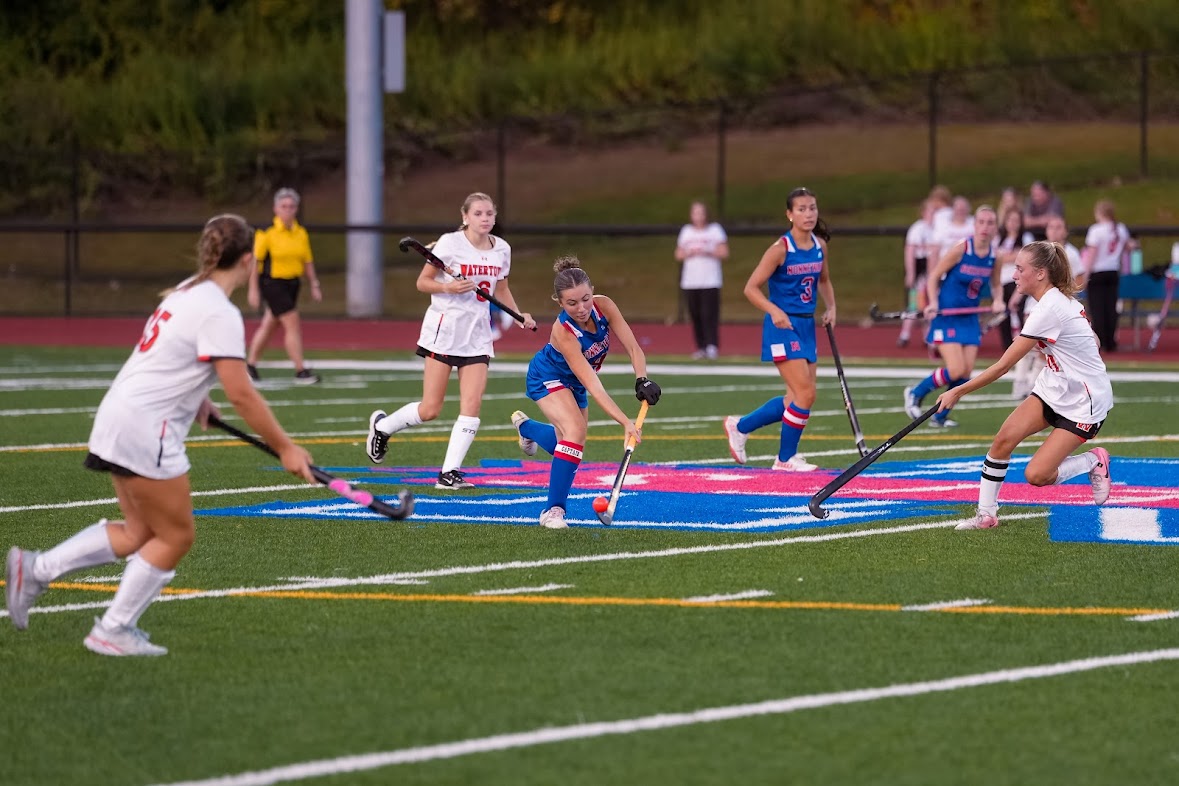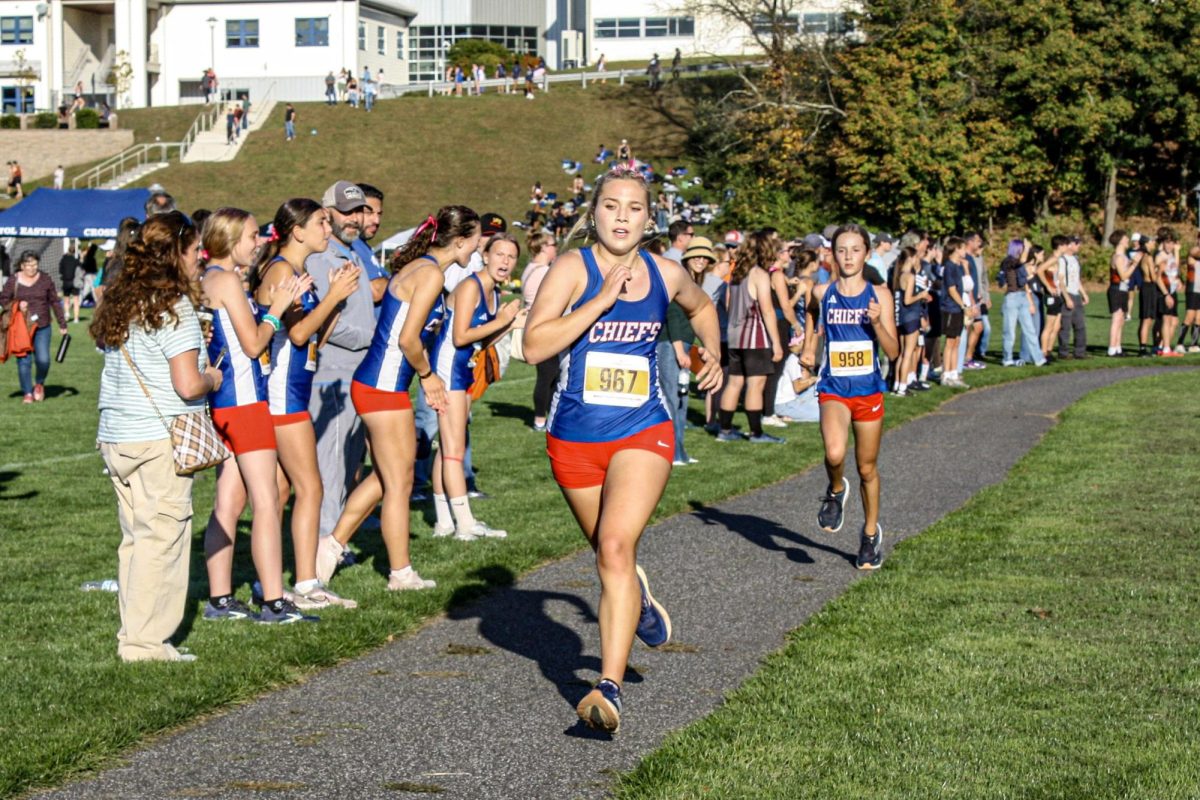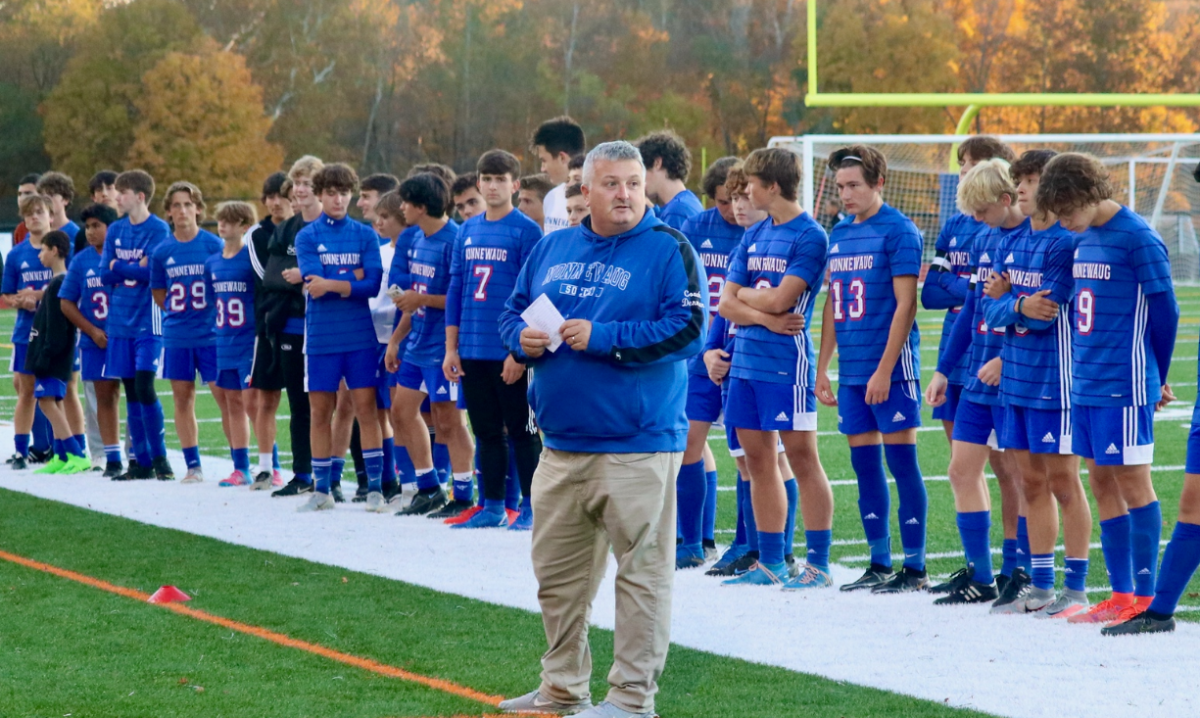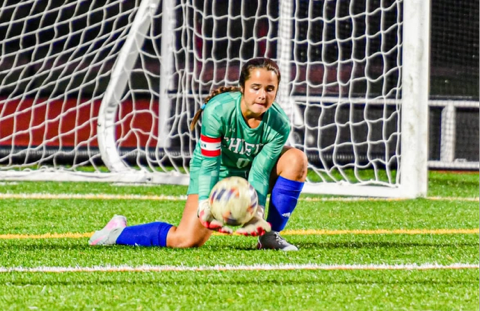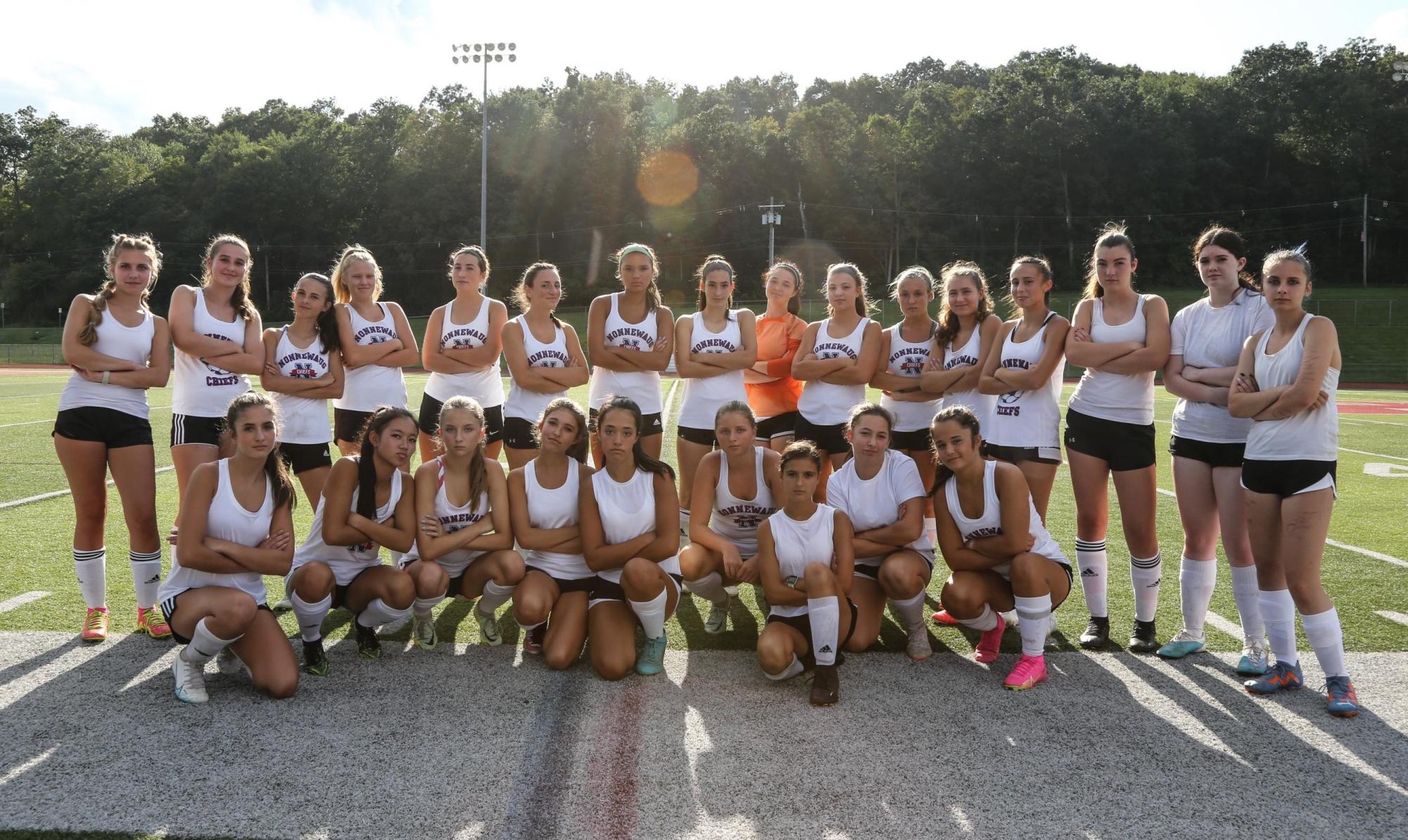
New CIAC Rules Will Let Teams Practice During Summer — But Not Everyone’s on Board
WOODBURY — At Nonnewaug, as well as the rest of the high schools in Connecticut, it has always been the same drill when it comes to offseason practices in the summer — athletes cannot practice with their coach until preseason begins. Captains’ practices are one way teams prepare to get in shape for their upcoming season, but coaches can’t attend.
But with the CIAC’s new rules allowing high school coaches to coach their teams for two days a week (for two hours in each session) during the summer, summer for high school athletes might look a lot different this year.
All coaches will have the ability to hold optional practices, resulting in some athletes possibly having multiple practices a week during summer vacation.
With Nonnewaug athletics thriving off its three-sport athletes, many are wondering how this new rule could affect them and their summers.
Declan Curtin, Nonnewaug’s athletic director, said the school expressed its disagreement with the rule proposal in a CIAC survey prior to the organization’s decision. However, now that the rule is set to take effect, Nonnewaug will figure out its own rules about how these optional summer sessions might look.
“There will be instruction from me as the athletic director to operate the way we always have been, because we have a very successful athletic program and if it’s not broken, it doesn’t need to be fixed,” Curtin said. “For me, it was not broken and it doesn’t need to be fixed, so I’m going to try to keep things as consistent as they’ve always been.”
The Chief Advocate met with nearly two dozen members of the Nonnewaug athletic community, including coaches and athletes, whose opinions on summer practices illustrate advantages and disadvantages of the new rules.
With the possibility of athletes having more time with their coach during the summer, it could open up new opportunities for athletes, giving them the time to strengthen their skills and technique before the upcoming season. Before, under most circumstances, coaches were not allowed to coach their players before the season began.
Nonnewaug’s athletic trainer, Sean McGee, concludes that the extra summer training sessions might be advantageous to Nonnewaug’s sports.
“I think it is a good way to keep kids healthy and to keep kids out of trouble,” McGee said. “I could see an increase in athletes with this. I also can see all of our teams here at the school becoming better overall.”
Kyle Brennan, Nonnewaug’s assistant baseball coach, agrees with McGee that offseason practices are a crucial part of preparing athletes for their upcoming seasons.
“Offseason workouts are an important part of being well prepared for your sports season, and they require time commitment, but we as coaches can’t make them mandatory,” said Brennan. “All we ever want to see are athletes coming into the season physically prepared so we can hit the ground running.”
Brennan also thinks that participating in these summer practices could give athletes more opportunity for playing time on the field.
“Those who are able to make the commitment to offseason practices are kind of putting themselves in a position to challenge for starting positions and extra playing time,” said Brennan, “and it ends up improving the whole team.”
Not only does having these practices keep athletes in shape for the next season, but having coaches at practices gives athletes more motivation to engage in conditioning.
Sophomore field hockey player and track athlete Sophia Garguilo says having her coaches there would add motivation for athletes.
“I would be pushed more with the coach there,” Garguilo said. “I like the idea of having a few summer practices. Most teams practice anyway so it would prepare us for the upcoming season more.”
After an exhausting school year, many athletes look forward to that nine-week break during the summer to rest and rejuvenate for the upcoming fall season. Whether they are looking to rest an injury or take some much needed time for themselves, with summer practices, that can all disappear.
Some athletes and coaches at Nonnewaug anticipate this causing some challenges for balancing the sacred summer time between sports and rest.
Toby Denman, the boys soccer and assistant girls basketball coach at Nonnewaug, says that summer practices will eliminate the much needed offseason break that both athletes and coaches need to give their all during the regular season.
“The school year runs from August to June, and sometimes you need the break,” Denman said. “I feel like people would be more enthusiastic about the start of the season once it’s the start of a season. … This [rule] makes it seem like there’s more investment of time that is gonna be asked of kids and coaches. We need to remember that it’s high school sports, not professional sports. Even professional sports have an offseason, and having a week of summer practices isn’t necessarily gonna win or lose the state championship. Anybody who thinks an extra week with them over the summer [will make a difference during the season] is an egomaniac.”
Henry Strzelecki, a freshman three-sport athlete at Nonnewaug, thinks that it could be difficult finding the time to attend summer practices.
“I feel like I’m more busy in the summer than any other time of the year, so I feel like it will be hard to get to those practices,” said Strzelecki. “You don’t really get a break.”
Ava Rickenbach, also a freshman three-sport athlete, agrees with Strzelecki.
“Summer is my time to relax and hang out with my family, and especially if I go on vacation, that would cause me to cut down on family time and time to myself,” said Rickenbach.
Not only would the summer practices be cutting back on athletes’ and coaches’ own individual time, it would also eliminate the physical break for athletes.
Brady Herman, a sophomore three-sport athlete at Nonnewaug, is concerned about how summer practice could affect athletes physically.
“Physically [the new rule] would affect me for sure. I feel like that would be physically draining,” said Herman. “I definitely feel like I would need a break. … And then I would have no other life besides practice.”
Sophomore volleyball player Lana Zupnick agrees with Herman, noting that athletes may burn out and eventually be in need of a break.
“Physically, I think depending on how much you like the sport,” Zupnick said. “I feel like it could be fun, but if [the practices are], like, multiple times a week, you’re going to be very tired. [I] definitely think that if there is a break, athletes should have that … to spend their time, go on vacation. … Summer is the time to be free.”
McGee says the importance of rest between seasons depends on the sport and the individual.
“Some breaks I believe are beneficial, but three-sport athletes or athletes participating in back-to-back seasons will have higher benefits when it comes to breaks,” McGee said. “In the sports [medicine] setting, it will depend on the similarities of the biomechanics in each sport. If the biomechanics are very similar for back-to-back seasons, rest will be a good thing to have to prevent overuse injuries. If the two back-to-back sports have different biomechanics, like swim vs. softball or baseball, I do not believe a break is totally necessary. The whole goal for breaks would be to prevent injuries or allow student-athletes mental health to rest for a couple days if needed. This all can be individualized.”
Ethan Wild, a sophomore two-sport athlete at Nonnewaug, acknowledges athletes need a break during the offseason.
“If you’re a three-sport athlete, that’s pretty much every day of the week in the summer, and that’s physically draining,” Wild said. “It is like three different sports at the same time.”
Freshman Gianna Desjardins, a three-sport athlete at Nonnewaug, feels that more practices could get in the way of academics along with restricted family time.
“Especially when you have that many sports, it takes up your entire week, so instead of having free time and being at home, you’re at school along with the months you’re already at school,” Desjardins said.
Nick Sheikh, the girls soccer and boys tennis coach at Nonnewaug, says that coaches find themselves in a hard position when it comes to balancing breaks and holding summer practices.
“Go do family stuff, but when the season hits, be ready to go,” said Sheikh. “That puts coaches in a tough spot, because, yeah, we love our sports, [so] we kind of want to [hold summer practices], but we also value kids’ family time and our own family time.”
More time spent together on the field may lead to more opportunities for team bonding, which could help incoming freshmen get a sense of the team culture and dynamics in addition to strengthening relationships with teammates.
In the past, teams that wanted to get a head start on incorporating rookies could hold captains’ practices or participate in summer leagues. Garguilo thinks these will still be useful for team bonding, but adding more structured practices with coaches would benefit the group, too.
“I like having captains’ practice because it’s where the team gets to know each other better, but one practice a week with more structure would be beneficial,” Gargulio says. “I think that alternating between a captains’ practice and one with the coach would be the best choice. Captains’ practices help me more mentally in bonding with the team.”
Charlotte Davis, a freshman three-sport athlete at Nonnewaug, agrees that summer practices with the coach can give athletes time to get acclimated.
“I’d see it as a good idea so that way you get team bonding before school starts,” Davis said. “You meet the team and everyone, and it could also help with incoming freshmen and their transition so it’s not all at once.”
Krystal Lionhood, a freshman, feels practices with coaches attending will further benefit freshmen.
“I think summer practices with the coaches are going to get new incoming freshmen acclimated to the team,” Lionhood said, “and is going to let freshmen be able to get to know their coaches and teammates better and be able to get better at their sport.”
Ella Quinn, a sophomore three-sport athlete at Nonnewaug, echoes the idea that coaches being at summer sessions will allow teams to bond more and get a better feel for the team.
“I think it would be really beneficial because teams would be able to bond even more,” Quinn says. “Coaches would get more time to bond with their players.”
Extra time with the team over the summer will open up new possibilities for athletes to get a feel for each other before the season begins.
“This will allow kids to create more chemistry amongst their teams and help all of Nonnewaug sports,” McGee said.
Nonnewaug relies heavily upon three-sport athletes who commit most of their school year to the Chiefs. Some athletes worry that adding summer practices could interfere with activities they don’t have time for during the rest of the year — and make for some long days with multiple practices.
“That would be so incredibly hard for me because I already have a busy schedule and I work as well, so having three sports two times a week that I would have to practice in the summer with work and my outside-of-school sports would be way too much,” Rickenbach said. “I think it definitely would have put some more challenges on juggling both sports and work. I definitely think it would put a lot more stress on me.”
The potential effect on athletes’ mental health concerns some coaches, too.
“I think it has the potential to affect the mental health of athletes, just from a stress perspective, [in terms] of feeling they have to please somebody [or] disappoint somebody,” Denman says. “There’s already enough difficult choices kids have to make, and having to pick between this program and that program or my team vs. my family. There’s already enough things to pick from; adding one more doesn’t make a ton of sense. What’s the benefit? What’s the reasoning for it? Winning? That’s a product of a lot of things.”
Multiple practices a week for different sports throughout the summer can bring challenges on which sport athletes choose to focus on.
“That would be really hard because I wouldn’t know what to focus on,” said Herman. “I actually would want to focus on one sport instead of all three at a time.”
Having three different practices for three different sports could cause some athletes to burn out. Sophomore three-sport athlete Grace Rubacha says athletes depend on their downtime, and they run the risk of burning out without it.
“It’s hard to juggle three sports; athletes need a physical break to recover from the previous season and any injuries or burnout they may be facing,” said Rubacha. “So three continuous seasons is beneficial, but may increase athletes’ burnout.”
Freshman three-sport athlete Max Nichols feels it’s hard to come out of a season and transition right into another one. Athletes thrive off that needed time off.
“I feel like it’s hard because people that aren’t three-sport athletes they usually get more time to prepare for that [next season],” Nichols said. “It’s hard if you come right out of one season and into the other, and if you have sports you do outside of school, that’s also tough to balance your time between that. I feel like I focus on the sport I’m in, and like whenever the new sport comes, that’s when I completely switch my attention.”
Denman says the same applies for coaches, too.
“I’m never happy that the season is over when it’s over, but sometimes having something else to focus on is a good mental reset,” Denman said. “And having to do [a sport] all the time, I feel like where burnout happens, from a coaching perspective and from an athlete’s perspective.”
The CIAC’s new rule will impact every school in Connecticut differently. The state’s guidelines will allow all coaches to begin working with their athletes beginning the Monday after the spring state championships end — this year, that’s June 10 — twice a week for up to four hours.
Nonnewaug’s summer rules will allow flexibility for athletes and coaches, according to Curtin. There will be opportunities for athletes to work out individually in the fitness center daily, and coaches will have the option to schedule practices on campus during times when McGee is on site. Curtin noted that some coaches don’t plan on holding summer practices.
“What we intend to do at Nonnewaug is to open up our fitness area where individuals can train without the coach everyday if they would like, but they could only be with their coach twice a week for up to four hours,” Curtin says. “Sean’s hours are going to be very specific, so we’re asking teams that they need to practice on site for those hours. But no real schedule is [going to be] put forward because some coaches are choosing not to do it. They want their players to have a summer.”
These guidelines seem to align with coaches and athletes, such as Wild, who feel optional summer sessions are the best way to go.
“It should be optional because most people during the summer are on vacation and don’t have the time to go practice that often,” Wild says.
Even though summer practices will be optional, Denman doesn’t think he’ll hold boys soccer sessions for a few reasons. Optional sessions mean inconsistent attendance, and plus, there’s nothing like the energy of the first day of fall sports at the end of summer vacation.
“I think that the excitement surrounding the fall season, there’s kind of a unique situation where everybody’s back to school, you’re happy to see each other — new year, new opportunities, that type of thing,” Denman said. “If you’ve had these summer workouts, just the uncertainty in terms of whether or not everybody is coming and how that is communicated — I think it puts a lot of people in tough situations.”
